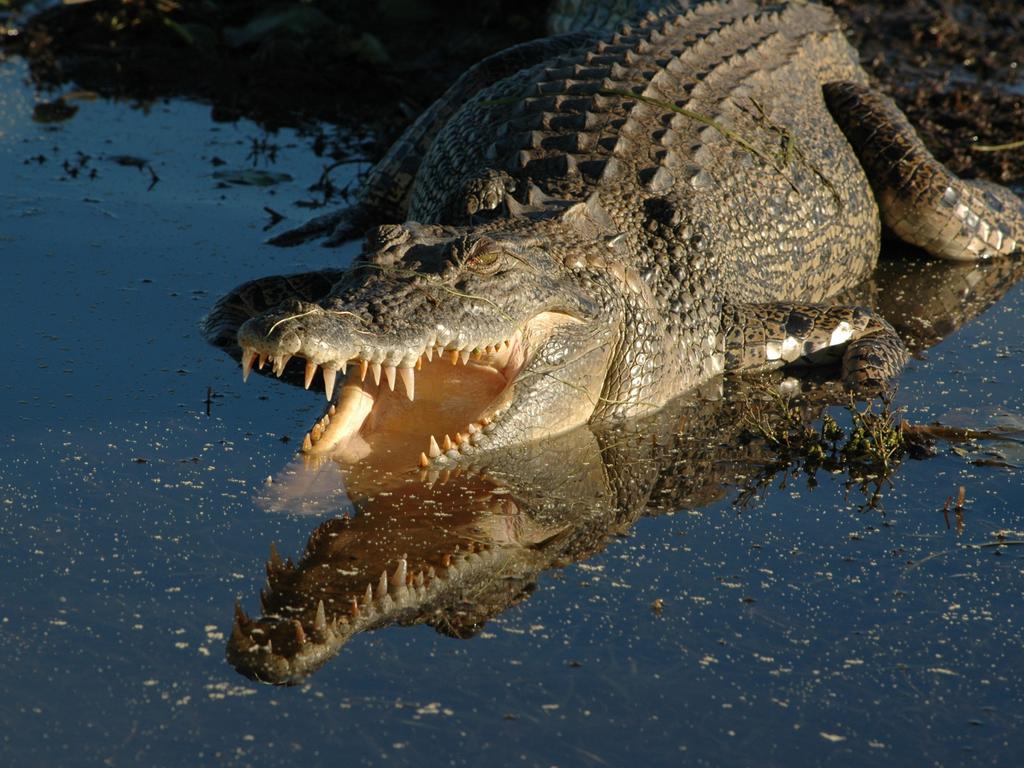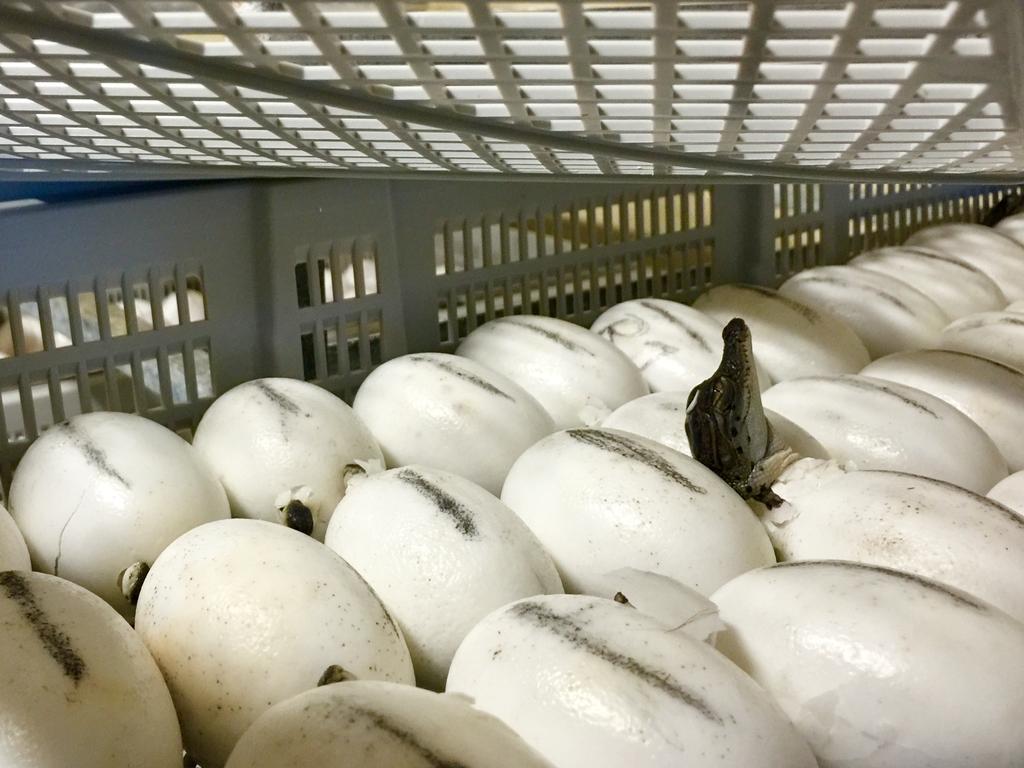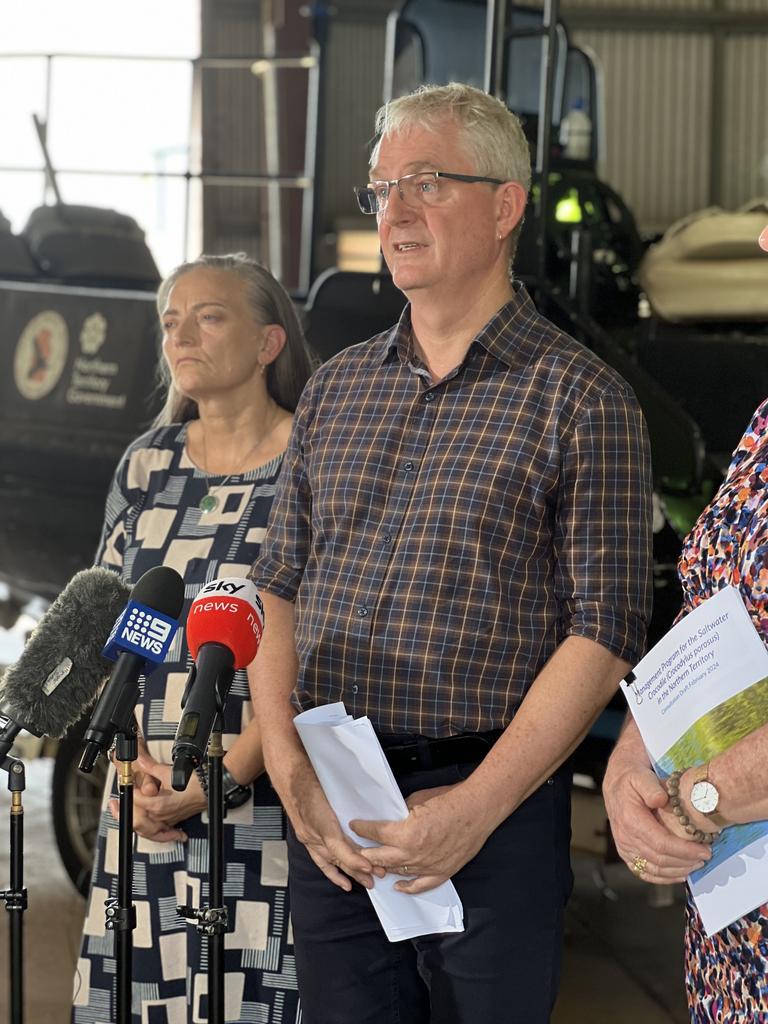Call for public input as NT government releases draft 10-year crocodile management plan
The Chief Minister says she believes the number of crocs in the Territory is too high, as the government calls for public input on croc management.
Public consultation is now open on crocodile management in the Northern Territory – including the possibility of culling, trophy hunting and updated regulation of the $25m industry.
Chief Minister Eva Lawler said she personally believed the number of saltwater crocodiles was now too high, as she released a draft plan to manage crocodiles for the next decade.
There are currently more than 100,000 crocodiles in the Territory, up from 1971 when unregulated hunting saw the population drop 95 per cent to just 3000.
“I grew up in the Territory and I remember swimming in lots of the billabongs and waterways across the Top End,” she said.
“When we start to see crocodiles in places like Wangi Falls, which we saw last year in 2023 where it then impacts tourists, I think we really need to make sure that we’re looking at those numbers.
“Trophy hunting is an option and particularly one for Aboriginal people who may be interested in that as an industry.”

The Draft Saltwater Crocodile Management Program 2024-2034 aims to balance conservation, sustainable harvest of crocodiles, and the management of risk to human safety.
Environment Minister Kate Worden said while the government was taking advice from experts on how to manage the apex predators the draft paper was “about consulting more broadly”.
“We have a fantastic industry, that’s the tourism industry but also the crocodile farming industry. We also have issues around public safety – crocodiles are an apex predator,” she said.
“We have removed more than 3000 crocodiles over the past 12 years, we want to hear from you whether we should remove more.”

The crocodile industry is worth at least $25m to the Territory economy, and is globally renowned for its production of high quality crocodile skins used for designer handbags, belts and shoes.
Up to 90,000 croc eggs are harvested by the industry from the wild each year.

Crocodiles are treated as an endangered species for international trade, and the Territory’s executive director of flora and fauna Alaric Fisher said ensuring a strong management plan was crucial to reassuring national and international observers.
“We don’t consider them an endangered species and clearly in the Territory they are returning to near natural levels, but there’s a lot of national and international restrictions around saltwater crocodiles,” Dr Fisher said.
He said the department’s models could calculate the implications of different culling scenarios “with a high degree of scientific certainty”.
Experts have expressed concerns that croc culling could encourage carelessness around the water, but Ms Worden said “there’s never a time that we can be complacent in the Northern Territory”.
“No matter what we do in this space that doesn’t take away from the fact that we do have saltwater crocodiles here in Northern Territory, which do pose a risk and you always have to be ‘Crocwise’ around any waterway that you’re in,” she said.
Visit the Have Your Say website before February 28 to provide comments: haveyoursay.nt.gov.au





